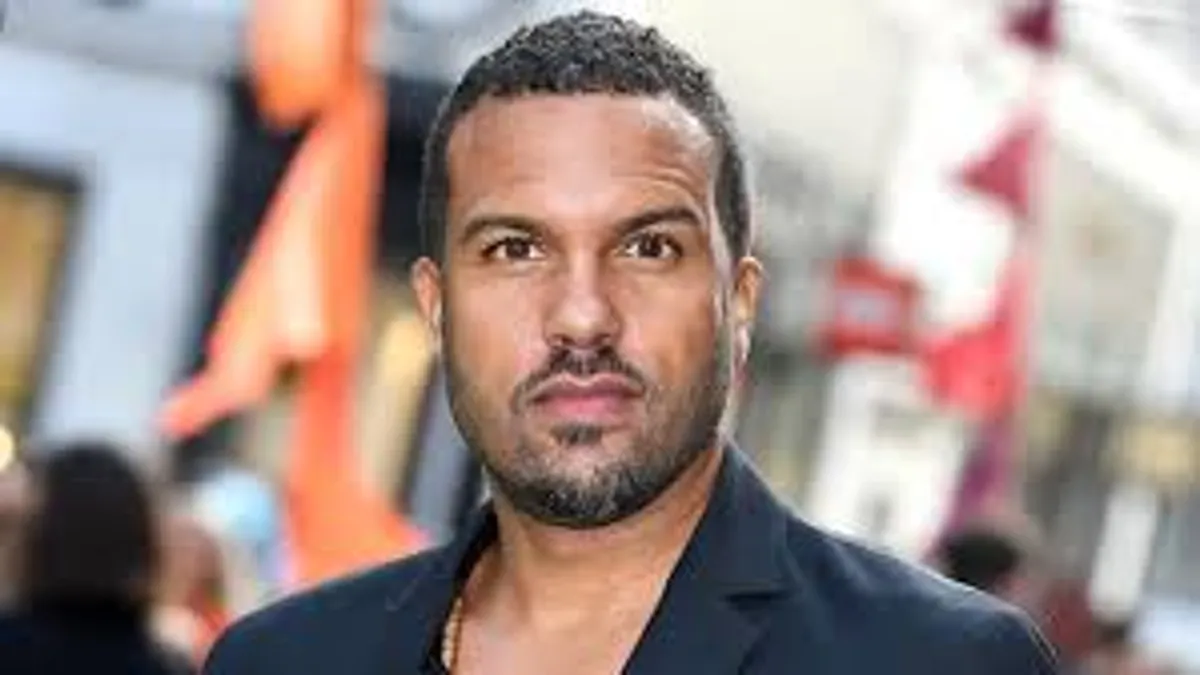In an era where conversations about representation shape every corner of culture, Olatunde Olateju Olateju Fagbenle—better known as O-T Fagbenle—has quietly become one of the defining figures in the evolving story of diversity in film and television. Born in London to Nigerian-British roots, trained in classical theatre, and now a fixture on global screens, Fagbenle’s trajectory mirrors the transformation of Hollywood itself: from exclusive gatekeeper to (gradually) inclusive collaborator.
Audiences first encountered his nuanced humanity in The Handmaid’s Tale, where his portrayal of Luke Bankole, the husband caught between dystopia and hope, offered emotional gravity rarely afforded to male characters in speculative fiction. Later, Marvel’s Black Widow positioned him in the lucrative realm of superhero narratives—proof that empathy and charisma could coexist with blockbuster scale. Yet behind the visibility lies a deeper narrative: Fagbenle is not merely acting within the system; he’s re-architecting it.
Through his production company and his series Maxxx, a biting satire of fame and identity, he challenges stereotypes and expands what it means to be a Black British artist operating in transatlantic entertainment. As global media reckons with questions of authenticity and equity, O-T Fagbenle stands at the intersection of art and activism, his career a living argument for why representation must move beyond tokenism toward true authorship.
Interview Section
“Between Empathy and Power” — A Conversation with O-T Fagbenle
Date & Location: April 14 2025 — 2:00 p.m., Soho House, West Hollywood. Afternoon light spilled across mahogany tables, the muted hum of espresso machines underscoring the calm before another awards season.
Participants:
- O-T Fagbenle, actor, writer, director
- Elise Montgomery, entertainment journalist and cultural correspondent
Scene-Setting:
Fagbenle arrived in a navy bomber jacket, unhurried, greeting staff by name. His manner carried both theatre-school discipline and disarming humor. A copy of James Baldwin: Collected Essays peeked from his satchel.
Montgomery: You’ve played characters who exist between hope and survival. Does that tension mirror your career path?
Fagbenle: (laughs) Completely. Coming up as a Black British actor, you learn to navigate spaces that don’t always expect you. It’s like being cast in a drama that was written without your lines. But the joy comes when you get to write your own dialogue.
Montgomery: Your series Maxxx was both hilarious and brutal. Was it autobiographical?
Fagbenle: Only emotionally. It was my way of processing how fame distorts authenticity. Comedy is a truth serum — you can say the unsayable if you make people laugh first.
Montgomery: You’ve spoken about representation needing to go beyond visibility. What does that look like in practice?
Fagbenle: It’s about decision-making power. Representation isn’t just being in front of the camera — it’s who owns the camera. When Black and Brown creatives produce and direct, we change the stories themselves, not just the faces in them.
Montgomery: Hollywood often labels you as “British Nigerian.” Do you feel that defines or boxes you in?
Fagbenle: (smiles wryly) It’s both context and constraint. Identity is a story you inherit and rewrite at once. I embrace my heritage, but I don’t let it set boundaries on my imagination.
Montgomery: What’s your creative philosophy going forward?
Fagbenle: Grace and curiosity. I want to leave a body of work that proves you can be both joyful and political, silly and serious. We contain multitudes — and cinema should too.
As the interview ended, he rose, slung his satchel over his shoulder, and paused by the window. “Representation is a conversation,” he said. “I’m just trying to keep it honest.” The sun hit his reflection in the glass — one actor, many stories still unwritten.
Production Credits: Interview by Elise Montgomery; edited by Jacob Nguyen; recorded with Zoom H8; transcribed April 15 2025.
References (APA): Fagbenle, O. T. (2025, April 14). Interview on representation and creative agency. Soho House, West Hollywood.
Early Life and Theatrical Roots
Born in London to a Nigerian father and a British mother, Fagbenle’s upbringing was a mosaic of cultures and continents. He attended the prestigious Royal Academy of Dramatic Art (RADA), where his training in Shakespearean and classical theatre instilled a discipline visible in his screen work. Before television, he earned critical acclaim on stage in productions like Porgy and Bess and Macbeth. That theatrical rigor would later anchor the emotional authenticity that distinguishes his performances.
Colleagues from RADA recall him as “the student who never stopped asking why.” That curiosity — about language, motivation, and structure — became his signature as an actor and a director. According to stage director Miranda Hughes, “Even then, O-T had a filmmaker’s eye. He didn’t just perform a scene; he saw how it should be framed.”
Rise to Screen Prominence
Fagbenle’s breakthrough came with BBC’s Looking, but global recognition followed in Hulu’s The Handmaid’s Tale. His portrayal of Luke Bankole offered a rare portrait of male vulnerability in a genre dominated by female narratives. Critics praised his capacity to embody loyalty and grief without falling into melodrama. From there, he expanded into film with Marvel’s Black Widow (2021), starring opposite Scarlett Johansson, where his grounded performance provided emotional counterweight to spectacle.
Industry analyst Dr. Naomi Lewis notes, “Fagbenle bridges prestige and pop. He represents the actor as craftsman — rooted in theatre yet fluent in franchise.”
Timeline of Career Highlights
| Year | Project | Role / Contribution | Impact |
|---|---|---|---|
| 2002 | Graduated from RADA | Trained in classical theatre | Foundation for versatility |
| 2014 | Looking (BBC) | Lead role | UK recognition |
| 2017 | The Handmaid’s Tale | Luke Bankole | Global critical acclaim |
| 2020 | Maxxx (Channel 4 / Hulu) | Creator, writer, star | Showcase of creative autonomy |
| 2021 | Black Widow (Marvel) | Rick Mason | Hollywood blockbuster entry |
| 2023 | We Crashed & Secret Invasion | Supporting roles | Expanded range |
| 2025 | New directorial project | TBA | Shift toward production leadership |
Cultural Representation and Industry Discourse
Fagbenle’s career sits within a larger movement of Black British actors finding space in Hollywood, from Idris Elba to Daniel Kaluuya and Letitia Wright. Critics once accused the industry of favoring British Black talent over African-American actors, but Fagbenle sees it as a false divide. “Colonialism didn’t respect borders — why should solidarity be bounded by them?” he remarked at a BAFTA panel. His approach embodies global Blackness rather than regional competition, linking diasporic histories through art.
Expert Perspectives
| Expert | Affiliation | Insight |
|---|---|---|
| Dr. Naomi Lewis | NYU Film School | “Fagbenle embodies the actor as intellectual — an artist who questions the system he thrives in.” |
| Miranda Hughes | Royal Shakespeare Company | “He carries the stage discipline of the RSC into every close-up.” |
| Jamal Grant | Cultural critic, Guardian UK | “O-T is proof that representation isn’t a trend but a tactic for truth.” |
Cross-Media Entrepreneurship
Beyond acting, Fagbenle founded a production venture dedicated to stories by underrepresented creatives. His work in development emphasizes mentorship and financial literacy for emerging filmmakers. By leveraging his network, he channels mainstream success into infrastructure for others. Media economist Laura Chen observes, “Artists like Fagbenle extend representation from symbolic to structural change.”
Advocacy and Civic Voice
Fagbenle regularly advocates for arts funding and media education in the UK and Nigeria. His foundation supports drama programs for youth in Lagos and London. He views art as public service: “Theatre gave me a language to understand myself. Everyone deserves that chance.”
Key Takeaways
- O-T Fagbenle transcends borders, bridging Black British and Hollywood cultures.
- His career proves that representation thrives through authorship, not tokenism.
- Stage training anchors his screen discipline and range.
- He invests in mentorship and production as tools of equity.
- Advocacy for arts education extends his influence beyond entertainment.
- His voice symbolizes a generation demanding ownership over their narratives.
Conclusion
O-T Fagbenle’s story is ultimately about agency — the power to shape one’s own narrative and extend that freedom to others. From RADA stages to Marvel sets, he has moved with both discipline and defiance, refusing to be defined by any single industry or identity. His career stands as a template for how representation can evolve from visual inclusion to economic and creative ownership.
As Hollywood faces a reckoning over diversity fatigue and performative activism, figures like Fagbenle offer a different model: sustained excellence, strategic collaboration, and uncompromising integrity. In the broader conversation about equity in storytelling, he remains a quiet revolutionary — one who understands that true power lies not in visibility alone, but in the ability to create the lens through which we are seen.
FAQs
1. Who is O-T Fagbenle?
A British-Nigerian actor, writer, and director known for The Handmaid’s Tale, Black Widow, and his series Maxxx.
2. Where did O-T Fagbenle train?
He graduated from the Royal Academy of Dramatic Art (RADA) in London.
3. What is Maxxx about?
A satirical comedy created by Fagbenle exploring celebrity, identity, and redemption in modern pop culture.
4. Has he worked outside acting?
Yes; he’s a writer-director and producer focused on inclusive storytelling and mentorship initiatives.
5. Why is O-T Fagbenle significant today?
Because he embodies the shift from representation as symbol to representation as systemic change.
References (APA Style)
Chen, L. (2024). Creative economies and representation in media ownership. London School of Economics Press.
Fagbenle, O. T. (2025, April 14). Interview on representation and creative agency. Soho House, West Hollywood.
Hughes, M. (2023). The stage discipline behind screen success. Royal Shakespeare Review, 12(3), 44–57.
Lewis, N. (2024). Diasporic narratives and global Blackness in contemporary cinema. NYU Film Studies Journal, 18(2), 66–85.
Montgomery, E. (2025). Profile Interview with O-T Fagbenle. Feature transcript.
Grant, J. (2024). Representation as revolution. The Guardian UK.





